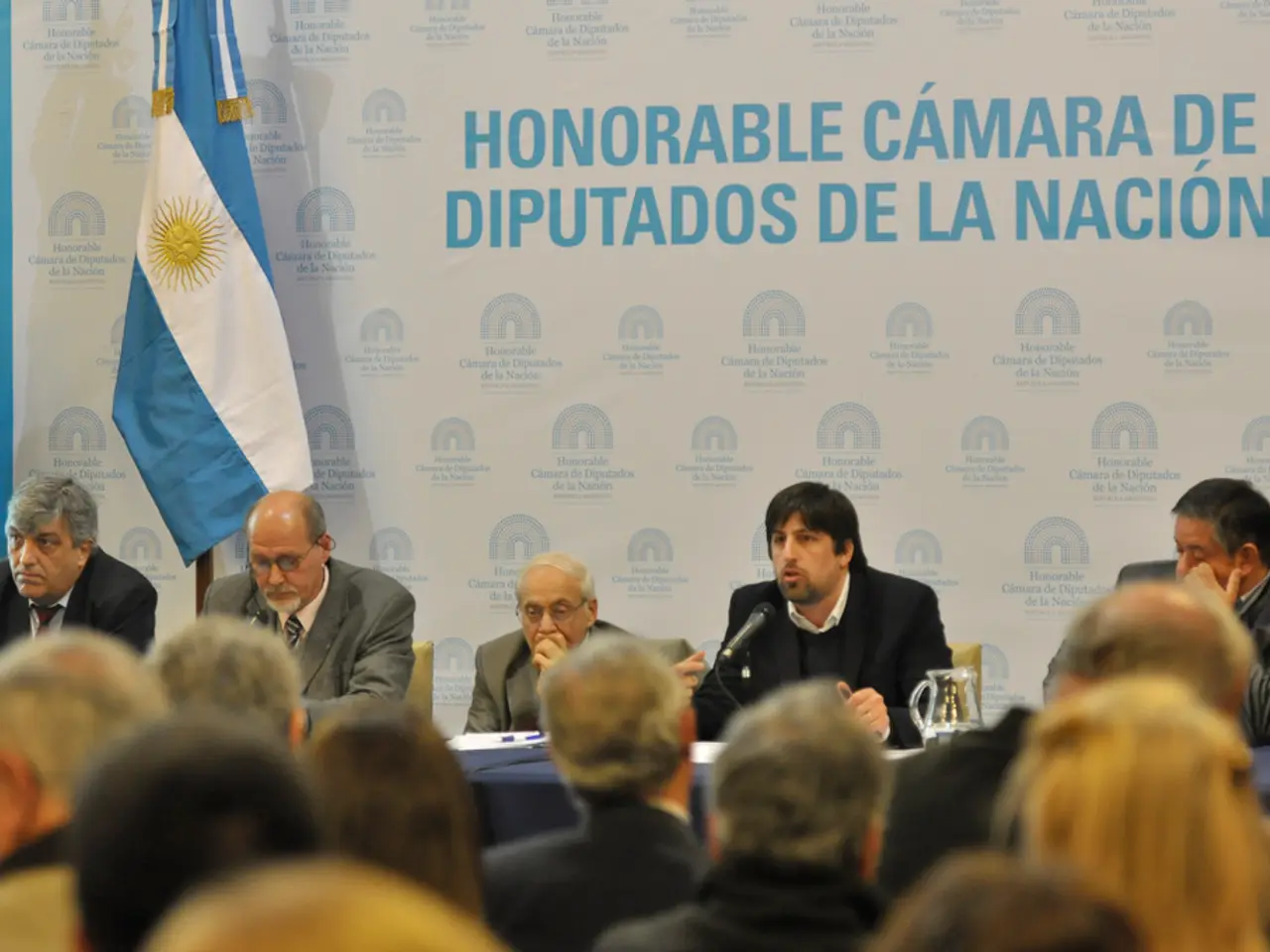"The Election Commission informs the Supreme Court that it is unable to disclose the identities of approximately 65 million deleted voters in Bihar"
The ongoing controversy surrounding the Special Intensive Revision (SIR) of Bihar's electoral rolls has sparked a political and legal debate, with the focus on the Election Commission of India's (ECI) efforts to update voter lists ahead of the October-November 2025 state elections.
The SIR, designed to ensure no ineligible person is on the rolls and no eligible voter is excluded, has raised concerns due to the exclusion of about 65 lakh (6.5 million) voters from the draft electoral roll published after the SIR. The ECI has attributed these exclusions to reasons such as death, migration, untraceability, and duplicate registrations.
Opposition parties have accused the SIR exercise of disenfranchising voters, particularly marginalized groups like Muslims, Dalits, and economically disadvantaged migrants, alleging it is being used politically to suppress certain votes.
Documentation Requirements under Scrutiny
The petitioners have challenged the SIR process in the Supreme Court, arguing that the documentation requirements are exclusionary. The SIR requires voters to provide any one of eleven specified documents to prove eligibility, a requirement that some contend is difficult for many, especially rural residents, to obtain.
Despite these concerns, the Supreme Court has observed that the SIR's document list is more "voter-friendly" than previous revisions, which required fewer documents. The Court has recognised the exercise as necessary for updating rolls but urged the ECI to adopt a more inclusive approach.
Judicial Oversight and Next Steps
The Supreme Court has intervened by ordering the ECI to publish the list of excluded voters and is hearing petitions challenging the process. It has acknowledged the risks of disenfranchisement but allowed the revision to proceed under judicial oversight, signaling concern about timing and inclusivity.
The 'claims and objections' phase of the SIR runs until September 1, with final rolls due on September 30. During this period, every voter has the right to be heard, submit relevant documents, and receive a "reasoned order" before a final decision.
The ECI has assured the Supreme Court that no eligible voter in Bihar will be removed from the electoral rolls without prior notice. However, the ECI has also stated that it cannot provide the names of the 65 lakh electors excluded from the draft electoral rolls in Bihar, nor disclose the reasons for their removal at this stage.
The Future of Bihar's Electoral Rolls
The Supreme Court will hear petitions against the ECI's Bihar SIR on August 12 and 13. The Court has called for "en masse inclusion" instead of exclusion, allowing Aadhaar and voter ID cards as valid documents for enrolment.
The ECI has defended the revision of the electoral rolls as necessary to ensure their "purity" by removing ineligible names. However, the Court has stressed that the ECI, as a constitutional body, must act in accordance with law, warning of potential intervention if there is "mass exclusion" of voters.
The controversy around Bihar's SIR reflects a political and legal struggle over electoral integrity versus alleged voter suppression, with the Supreme Court playing a critical role in scrutinising the fairness and transparency of the special revision process.
- The debate surrounding the Special Intensive Revision (SIR) of Bihar's electoral rolls has not only sparked political discussions but also extended to the realm of finance, as the question of costs for obtaining necessary documents for the SIR has been raised.
- The policy-and-legislation aspect of this controversy becomes evident as the Supreme Court decides to scrutinize the SIR process, particularly the documentation requirements.
- The ongoing controversy around Bihar's SIR has caught the attention of the general news, with reports focusing on the Supreme Court hearings and the question of voter inclusivity in the electoral rolls.






